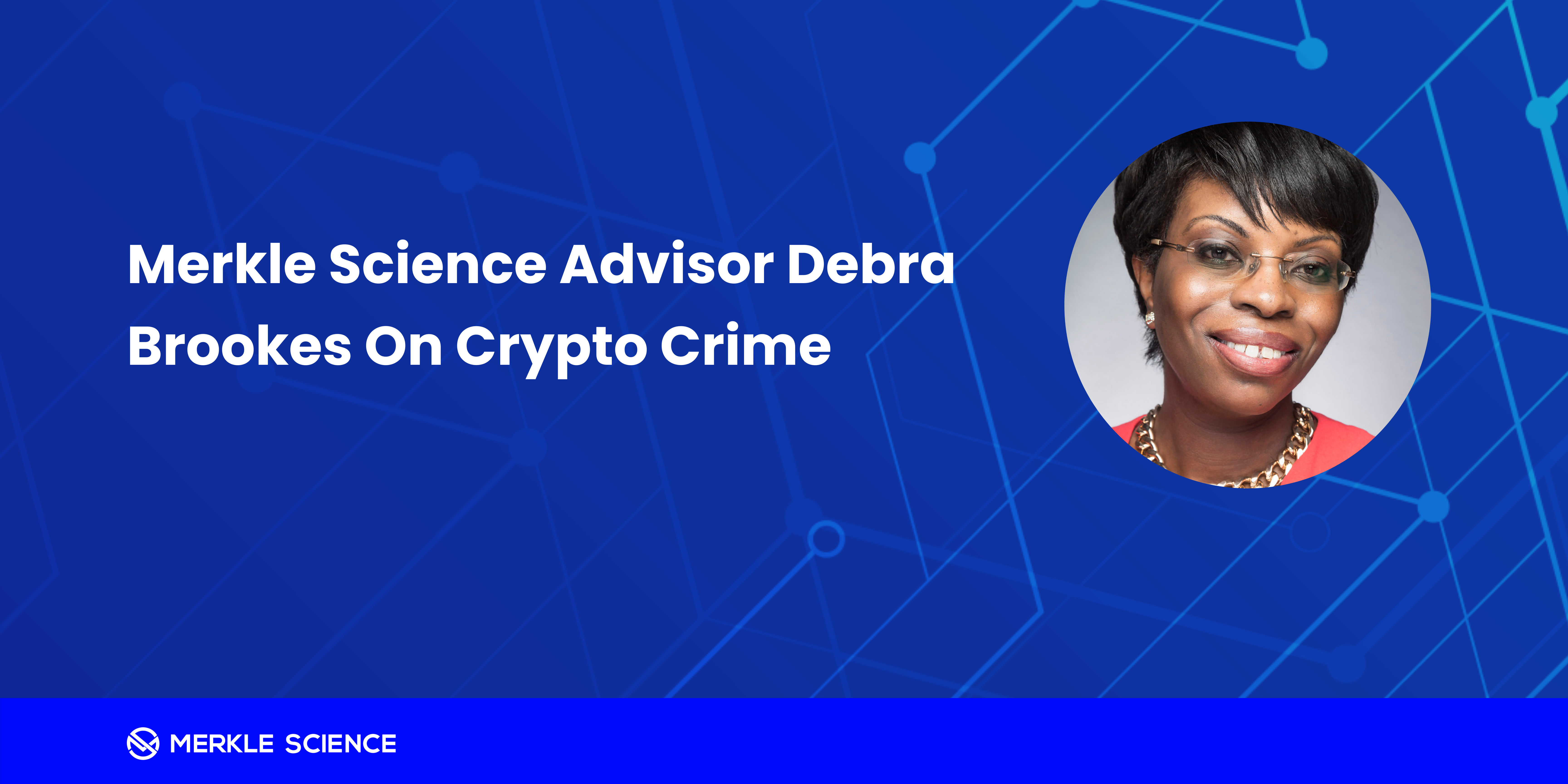Merkle Science Advisor Debra Brookes On Crypto Crime

Merkle Science

In this exclusive interview, we speak with Debra Brookes, a distinguished former Deputy Virtual Currency Chief at the New York State Department of Financial Services (NYDFS) and now an advisor at Merkle Science. With a twenty-year career in cryptocurrency regulation, financial fraud prevention, and white-collar criminal enforcement, Debra has been instrumental in overseeing over 30 cryptocurrency-licensed entities and securing significant compliance achievements. Her expertise in navigating the complex regulatory landscape makes her a vital asset to Merkle Science's mission to enhance safety and integrity in the crypto industry.
In this conversation, Debra shares her insights on the future of crypto regulation, the challenges of preventing illicit activities, and the innovative approaches Merkle Science is pioneering to ensure robust compliance.
During your tenure as Deputy Virtual Currency Chief at the New York State Department of Financial Services, what were some of the most challenging and rewarding aspects of overseeing over 30 cryptocurrency-licensed entities?
My most challenging aspect as Deputy of Virtual Currency at the New York State Department of Financial Services was balancing companies evolving compliance standards while encouraging meaningful innovation with new products and services. My most rewarding aspect was helping to shape a regulatory framework that safeguarded consumers and promoted safe and sound space for New York residents.
What are some of the most significant regulatory challenges facing the cryptocurrency industry today?
The cryptocurrency industry faces significant challenges due to regulatory fragmentation. Different countries have adopted varied regulatory frameworks, creating a complex and inconsistent landscape for companies. This fragmentation results in conflicting requirements, making it challenging for global businesses to ensure compliance across all jurisdictions. The U.S., in particular, failed to enact a federal comprehensive framework that would provide clarity in the United States while asserting itself as the global crypto leader. Instead, we are left with a regulatory hodgepodge from federal agencies and states. Passing bills like FIT21, while imperfect, is ostensibly a starting point towards clarity.
Can you share specific techniques or strategies that have proven effective in detecting and preventing financial fraud within the cryptocurrency space?
Crypto fraud is not new! Fraudsters merely adapted decades-old techniques onto the blockchain. Like with traditional finance, implementing robust AML and KYC policies and procedures, utilizing blockchain analytics tools to monitor transactions for suspicious activities, and conducting regular risk assessments are crucial in detecting and stopping crypto fraud. Also, engaging with legal and compliance experts ensures adherence to evolving regulations.
How can cryptocurrency companies build strong relationships with regulatory bodies and law enforcement agencies to ensure compliance and effectively address illicit activities?
Companies engaged in cryptocurrency can build strong relationships with regulatory bodies and law enforcement agencies by maintaining open and transparent communication. Regularly engaging with regulators through meetings, consultations, and industry events helps companies stay informed about regulatory changes and expectations. Companies should proactively share information about their compliance programs, demonstrating their commitment to adhering to laws and regulations. Investing in robust AML and KYC programs, along with advanced blockchain analytics tools, can demonstrate a company’s proactive approach to preventing illicit activities. Regular training and education for employees on compliance and regulatory developments further strengthen these efforts.
What aspects of Merkle Science's approach and mission do you find most compelling, and what excites you about working with the team?
Merkle Science's proactive approach to cryptocurrency compliance and risk management, using advanced blockchain analytics to detect and prevent illicit activities, is highly compelling. Their mission to create a safer crypto ecosystem through innovative solutions aligns with my passion for regulatory compliance and financial security. I'm excited about working with a team dedicated to pioneering efforts in crypto risk mitigation, contributing to industry standards, and fostering a secure environment for digital transactions. Collaborating with experts who share a commitment to integrity and innovation in the evolving crypto space is a thrilling opportunity for me.
Be sure to sign up for Debra Brooke’s Crash Course in US Crypto Regulations, Compliance, and Blockchain Analytics on August 7th, 2024 to gain the knowledge and tools needed to navigate the complex regulatory landscape and ensure robust compliance measures.


